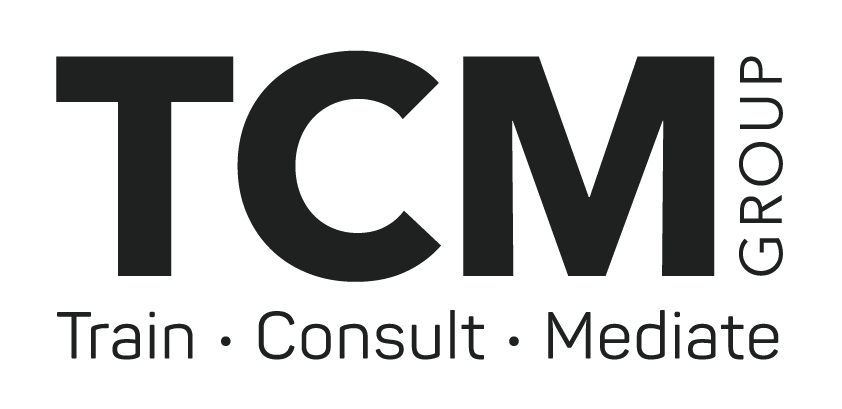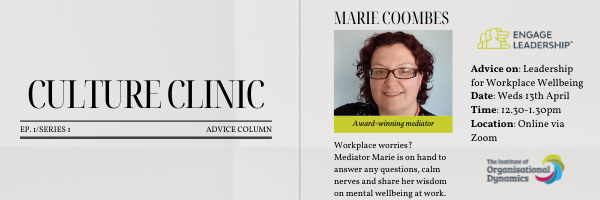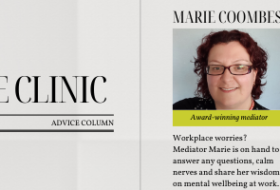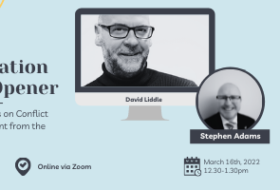Our mental health expert Marie Coombes talked all things workplace wellbeing in our first ever Culture Clinic. During the session, Marie shared advice, wisdom, and tips to those seeking help for various workplace scenarios.
To spread the message as far and wide as we can, we’ve written a recap below:
What are the early signs of mental ill health?
The main early warning sign is a change in behaviour. We don’t always notice them because we tend to be quite wrapped up in our own world. Sometimes, especially if you’re a line manager, it is about putting your head above the parapet and looking at what’s going on for your staff. It’s even more difficult in the workplace at the moment where you’ve got the vast majority of people still working from home or working virtually. But the kind of signs you’re looking for, is somebody suddenly starting to become quite irritable, out of character, or generally down. This could be something as small as switching the video off when speaking on Teams, Zoom or Google Meet. A change in tone also demonstrates that there might be something else going on.
More apparent are high and low moods. Usually, one of the first signs that I tend to see is people going off sick because they’re struggling with anxiety. Personally, anxiety hits me in the stomach, and for other people I know, it hits them in the chest. Are you seeing them spending more time withdrawing either through absence or through missing meetings? Are they eating more or sleeping more? Are they eating less or sleeping less? The biggest things are those out of character behavioural changes, which might be very, very small to start with, but they’ll grow legs.
In summary:
- Long-lasting sadness of irritability
- Extremely high and low moods
- Excessive fear, worry or anxiety
- Social withdrawal
- Dramatic changes in eating or sleeping habits
Remember, if you spot one of these signs, it doesn’t always mean someone has a mental health issue. It could signal an underlying health problem or something else entirely.
Can you explain the link between wellbeing and workplace conflict?
It’s a cause-and-effect relationship. Put yourself in a position where you are struggling with a particular conflict – it could be just a little niggle with the person sat next to you. If you think about all those times that you have to sit next to that person, that’s drip feeding straight into your stress container. It’s making it more and more difficult for you to have a civil conversation with that person, which feeds that conflict. All the time, this is dripping into your stress container and reducing your capacity to deal with anything else.
If something else comes along, you might react irritably with that person, which then generates conflict elsewhere. You may pick up the phone to another team and start complaining about your team to them, that then creates conflict between the two teams. It starts to grow legs. And as we all know with conflict, it never involves two people. It involves a cast of thousands. If it’s affecting two people on that team, I guarantee it’ll be affecting 20 or 30, or 200.
I know I dealt with a case in Royal Mail that was wellbeing related: somebody suffered from severe hay fever, and the person next to them opened the window which immediately increased their hay fever symptoms. They fell out; they couldn’t even get in a van together anymore. We ended up having to do mediation to try and reset that relationship.
The other thing to consider with that, as well, as that stress container’s filling, it makes us more vulnerable to developing something other than just stress. If you’re already suffering from a mental health condition, such as anxiety or depression, and your stress container is filling, it’s only going to make that condition ten times worse. If you don’t suffer from a condition, that overflowing stress container can start one. In that sense, there’s a huge cause-and-effect relationship between wellbeing and conflict.
Recently, a study by CIPD has reported that the attention employers had been paying to wellbeing has dropped slightly. What are your thoughts on this direction of travel?
My personal view is, unfortunately, that it’s going to continue to drop, because I think there’s a lot of organisations that think, “Oh, we’ve done enough. We’ve got past COVID. We don’t need to focus on that anymore.” But I may be doing a disservice; I’d like to think that’s not going to be the case. As the focus on COVID eases, many feel that they don’t need to support others so much. 51% of companies may prioritise wellbeing, but what that says to me is that there’s still that 49% of companies out there that are not treating it as a strategic priority; not recognising the impact that having a well workforce has on their bottom line.
As cost of living has increased, many businesses are looking at financial wellbeing initiatives. What is available as formal training for this?
The biggest thing, and I’ve actually used it, is Neyber. It’s a brilliant service that organisations can bring it in that will provide financial wellbeing support as well as providing the opportunity for people to take back control. I would certainly have a chat with whoever delivers your occupational health, because Neyber is the only one that I’m aware of, which is probably a sign of why it’s not a strategic priority for many companies. Your occupational health service will probably be able to provide greater direction in terms of that, but I can highly recommend Neyber.
Are there any standout strategies that employers can use to promote that open and honest culture surrounding health and wellbeing?
From The TCM Group, the Resolution Framework™ is a great tool to implement culture change in organisations. I passionately believe that the processes and procedures we use now generate conflict. And as we know, conflict has a direct link to wellbeing, so employing a Resolution Framework™ that focuses on resolution, rather than retribution will directly promote an open and honest culture. It facilitates adult-to-adult dialogue to get to the root of the issue. Rarely do formal grievances ever get to the root cause of the problem, and I don’t know anybody that’s ever come out of litigation that’s felt satisfied by the results. The Resolution Framework™ takes that, rips it up and focuses on people talking to each other and resolving issues at the earliest possible point. It’s a complete culture change as well because it’s about transforming your organisation into exactly what you’re seeking: an open and honest culture.
If I’m struggling with my mental wellbeing but I’m apprehensive about telling my line manager, how would I approach this?
I can summarise this with six tips:
- Reframe your understanding of health. Mental health is no different to physical health; you wouldn’t hesitate to talk to your line manager if you had broken your leg.
- Take care of yourself – it takes a lot of energy (and bravery) to share.
- Take time beforehand to think about what you need from work and how your mental wellbeing may be affecting you in the workplace.
- Find the right time and place – not five minutes before your line manager is going for a meeting.
- Be clear and concise but professional and appropriate. Your line manager doesn’t need to know everything, and you should only share what you are comfortable sharing.
- If you have concerns about contacting your line manager, speak to someone you trust.
If you’re a manager or any employee, and in a situation where you are seeing perhaps signs of some mental ill health, but at the level where it becomes quite severe and serious, what do you think the best approach is if you’re concerned about them?
Don’t be afraid to ask. Question how they are and be genuine about it. If you’re struggling to get that genuineness across, ask twice. Quite often, whether somebody’s got a serious consequence or condition or if they’re just having a bad day, the way you approach that conversation should be relatively the same. More often than not, that first answer is a reflex of “Yeah, I’m fine.” But dig a little deeper: “I’m genuinely asking how you are, and I want to make time for this conversation. I’ve noticed you’re not quite yourself. Let’s have a coffee and a conversation about what’s going on for you.” Be genuine and respectful about it and make time and space for that conversation.
During that conversation, make sure to actively listen. Many of us listen to respond rather than to hear. Active listening is about summarising and reflecting back, with open questions and awareness.
Speaking of awareness, you can also do a Mental Health Awareness course. It’s two days which will enable you to have those conversations with confidence, competence, and compassion. Build your understanding, read, and research it the same as you would do if somebody had a physical condition.
In terms of resources, specifically small organisations with few financial resources, what can businesses do to implement useful policies and changes?
There are a lot of mental health charities that centre on the workplace and offer support for small-and medium-sized enterprises that are struggling in terms of cash flow to get those things through. Take a look at:
In terms of TCM, we offer a range of courses with all budgets in mind. You don’t have to become a fully-fledged mediator if that’s not in your interest of financial ability: short courses such as Quality Conversations™ enable managers to understand how and when to have critical discussions with their employees. Most companies are there to be supportive – don’t let budget be the thing that stops you from having the conversation.
What if the line manager is concerned about an employee’s mental health has had frank conversations about it, helped the employee to get more counselling, but they still seem to ignore the scale of the problem and the impact on their productivity and ability to perform the job. Any advice?
You can only help somebody so much; they have to want to get that help as well. What I would suggest if they’re getting counselling is that their counsellor is probably working with them. You may be able, through their occupational health process or through your occupational health service, to have a conversation with them about the support or information that could be passed on to the counsellor to help support those conversations. It’s about encouraging them that the help is there, and to take access of it. I know personally how frustrating it is to try and help somebody to no avail. That’s where you need to sometimes take a step back and realise that you might have to do what you don’t want to do, which is use the performance management process and facilitate those difficult conversations. When this route is the last and final resort, it’s critical that you equip yourself with the tools to have those conversations in a respectful, resolution-focused way. At the same time, help them to recognise that if they’re not willing to get the help, there’s not a huge amount you can do.
What are some quick and easy ways to prioritise wellbeing both at work and at home that anyone could action every day?
It’s all about self-care: it’s not selfish and it’s as important as breathing. The biggest thing for me is find out what works for you – this means something that promotes your unique and personal health and happiness. When you’ve figured this out, be deliberate about it and make time for it. Don’t worry about carving out five minutes or an hour here and there. Create boundaries, refresh your mind, and prioritise your own self-care.
If you missed the session, you can watch the full recording below.
If you’re interested in finding out more about anything discussed in the episode, please feel free to contact Senior Communications Executive Robyn Marsh for more information.
About the author
Robyn Marsh is Senior Communications Executive at The TCM Group (Train. Consult. Mediate.)
If you would like to discuss Robyn’s post in more detail, please contact her at [email protected]








